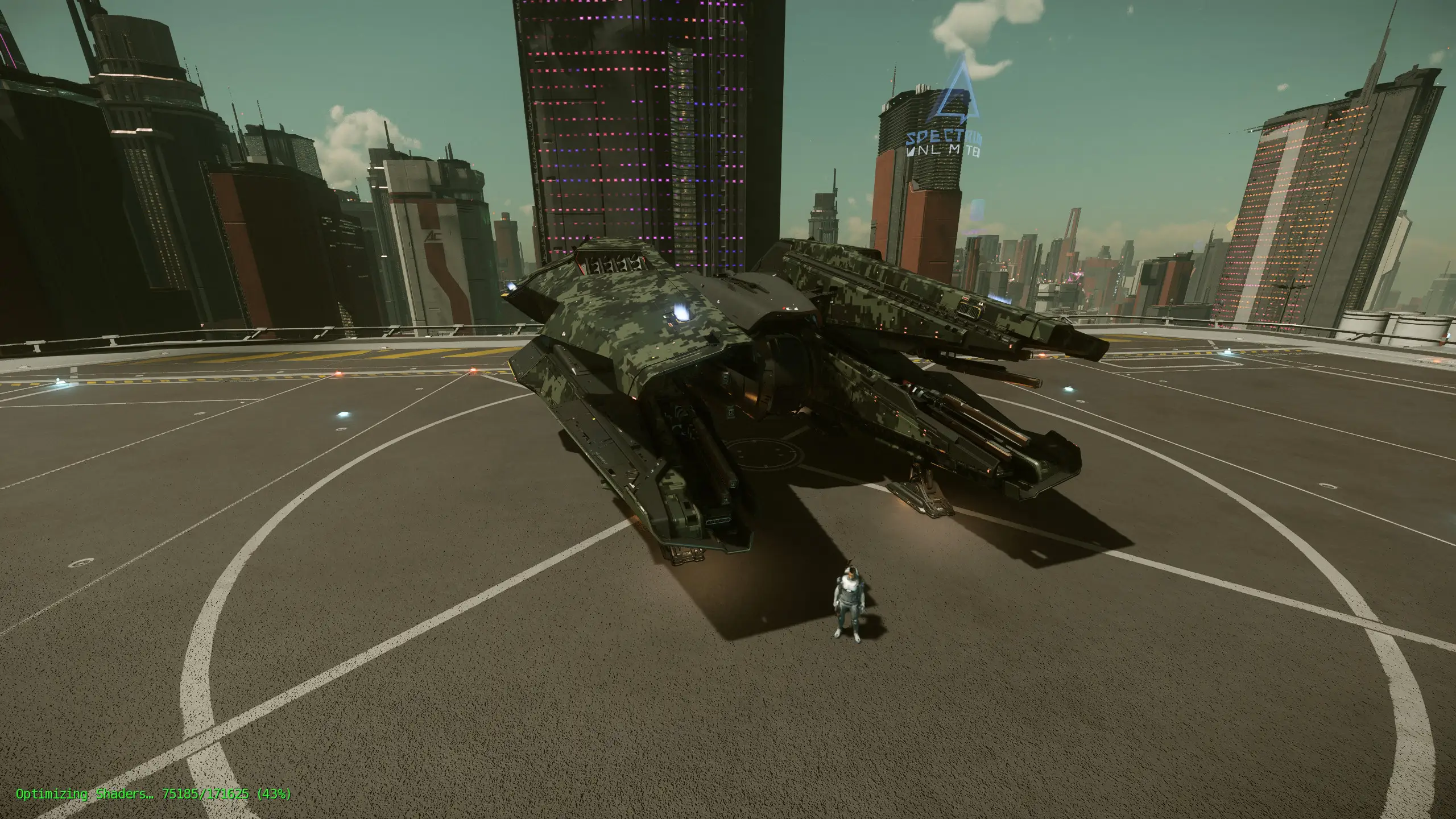Attend, fair souls, and lend thine ears to a tale most curious: a parable of buzzing knights and honeyed realms, wherein young Barry B. Benson, a bee of sprightly spirit and restless ambition, doth find himself ensnared in conflict most unnatural.
In the kingdom of the hive, where golden waxen towers do gleam beneath the warming kiss of Phoebus, all bees are born to toil, each to their station bound from cradle to grave, with neither variance nor hope of change. Yet Barry, whose mind is sharp and heart doth yearn for distant ventures, gazeth upon this fate with discontented eye, much like a caged songbird whose wings do itch for flight.
Thus, on the day of his ascension from academia—a day which the hive doth make merry with pomp and ceremony—Barry and his steadfast comrade, Adam Flayman, are bid choose their life's labor. But Barry, loath to bind himself to a single craft for all eternity, declineth to decide, and seeketh adventure beyond the hive's perfumed gates.
Anon, he joineth the valorous Pollen Jocks, those aerial knights who ride upon the wild zephyrs and dance with peril to gather the pollen that sustaineth their world. With courage swelling in his breast, Barry ventureth into the vast dominion of Man.
'Tis there, amidst gardens of riotous bloom and cities of stone and steel, that Barry encountereth a marvel most unnatural: a damsel of human form, Vanessa Bloome, whose kindness doth transcend the bounds of her kind. For in a moment most dire, when Barry, trembling upon the precipice of doom (a shoe descending swift as fate), is to meet his mortal end, Vanessa, moved by mercy rare among men, dost spare his life.
In gratitude profound, Barry breaketh the sacred oath of silence that bindeth bee to bee, and speaketh unto the maiden in words plain and clear. Astonishment reigneth! From this forbidden communion sprouteth friendship most unlooked for, a bond sweeter than ambrosia, and Barry's heart is torn betwixt duty and discovery.
Yet alas, the world of Man is not but gardens and kindness. Barry's roving eye espieth a crime most foul: the plundering of honey, the sacred gold born of bees’ tireless art, displayed and sold in vulgar marts of commerce. Indignation filleth Barry's breast, and he swears upon his honor to right this grievous wrong.
With passion afire, Barry summoneth the laws of Man to his aid, and bringeth suit against the mighty corporations who have enslaved his people's labors. A mighty trial ensueth, where rhetoric and reason clash as swords upon the lists. Against all odds, Barry prevaileth; the court, in solemn judgment, decreeth that honey must return unto the bees, and the labors of the hive shall be their own once more.
Yet folly followeth fast upon victory. Deprived of their noble work, the bees sink into sloth and melancholy; the flowers wither; the trees, unkissed by pollen, droop and die; and Earth herself beginneth to wail in slow despair. Realizing the ruin he hath wrought, Barry repents his triumph, and seeketh a way to mend the shattered world.
In desperate valor, he, with fair Vanessa, commandeereth a vessel of the skies—a flying machine of metal and flame—and, through cunning and courage, restoreth the lost pollen to the fields. Flowers bloom anew, the bees awaken from their stupor, and life returneth to the fair bosom of the Earth.
Thus is balance restored, labor honored, and a bond forged between bee and man, where once there was ignorance and strife. Barry, emboldened by his travails, taketh upon himself a new role: a herald between realms, a speaker of truths, and an advocate of peace.
And so endeth our tale, sung by buzzing minstrels in the fields, and whispered in the petals of every blossom that tilts its head toward heaven.
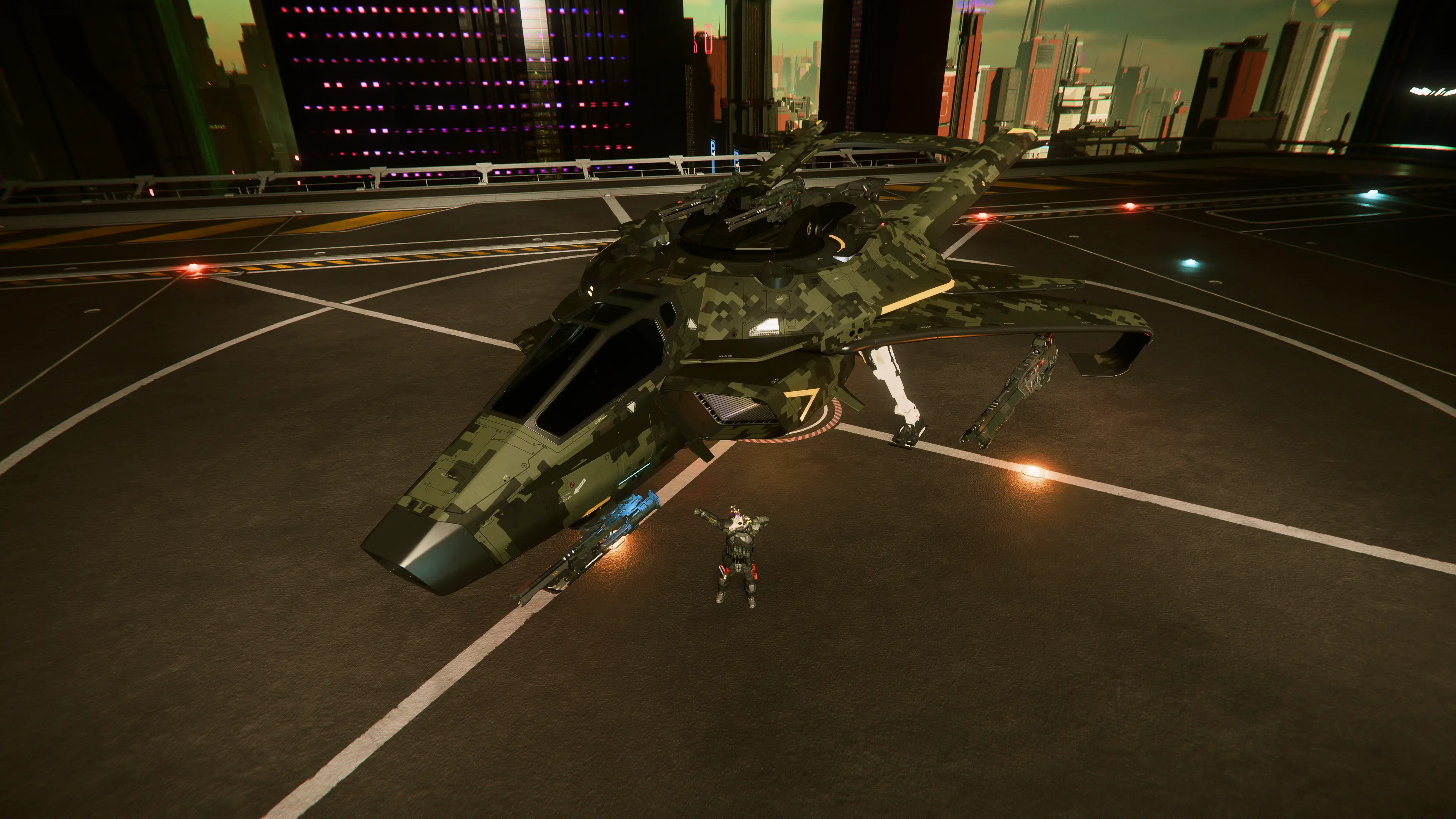
Steve, clad in tunic of turquoise hue with fists bare, stood alone in a forest of perfect squares. "What land is this," quoth he, "where grass doth grow in rigid grids, and cows do moo with faces flat and unblinking? I know not whence I came, nor why I breathe—but verily, I hunger. Wherefore is there bread?" Spying a generous tree, he smote it with his bare hands, undoing its bark with primal might. From wood he fashioned planks; from planks, tools; and thus was he become the carpenter of fate. With solemn ceremony he crafted sword, pickaxe, and a crafting table, and so his journey began. Yet as the sun did sink swift and low, Steve feared what walks by night—creatures groaning, limbs decayed, with eyes aglow. From the darkness emerged zombie, creeper, and skeleton, and explosions shook the earth. To stone he fled, burrowing deep beneath the firmament, through strata thick with coal and iron and halls veined in redstone, till at last cursed lava hissed at his boots. There, encased in vile stone, he discovered diamonds, blue and brilliant as Fortune's smile. Armed now with iron and diamond mail, and accompanied by a faithful wolf, Steve raised high a mighty castle; but his world would not end at the walls of stone. With fire and obsidian he built a purple gate, shimmering like a mad star, and with a heart full of dread, he stepped into the Nether. In that hellish realm where blazes shrieked, ghasts wailed like banshees, and lava flooded the land, Steve sought blaze rods and ghastly tears to brew potions and forge his path to destiny. Ender pearls and blaze powder he combined to craft the Eye of Ender, which flew forth to reveal the stronghold where final fate awaited. "Fly, cursed orb," he cried, "show me the place where block and soul find their ending." Upon finding the stronghold, the ancient portal awakened, swirling with the starlit void. His wolf barked in sorrow, but Steve, with heavy heart, bade it stay behind, too pure to witness the trials ahead. He leapt into the portal, falling into blackness. In the End, towers of obsidian rose high, and the Ender Dragon, vast and terrible, soared above. Drawing bow and blade, Steve faced the great flapping wyrm, the terror of the skies. "Too long," he cried, "hath thine obsidian perch defiled this world! Begone, be slain by pixel'd steel and flint!" Arrows flew, crystals shattered, the dragon roared, and with a final mighty blow, the beast fell in light, raining experience like a blessing. "So endeth the beast," Steve said. "So endeth the fear. What now? Build I a farm? A mansion? Or stare into the void of choice eternal?" The world faded to black, and in emerald letters, the pixels spoke: "Player, you are the story. You are the builder. You are the destroyer. Go forth and make anew."
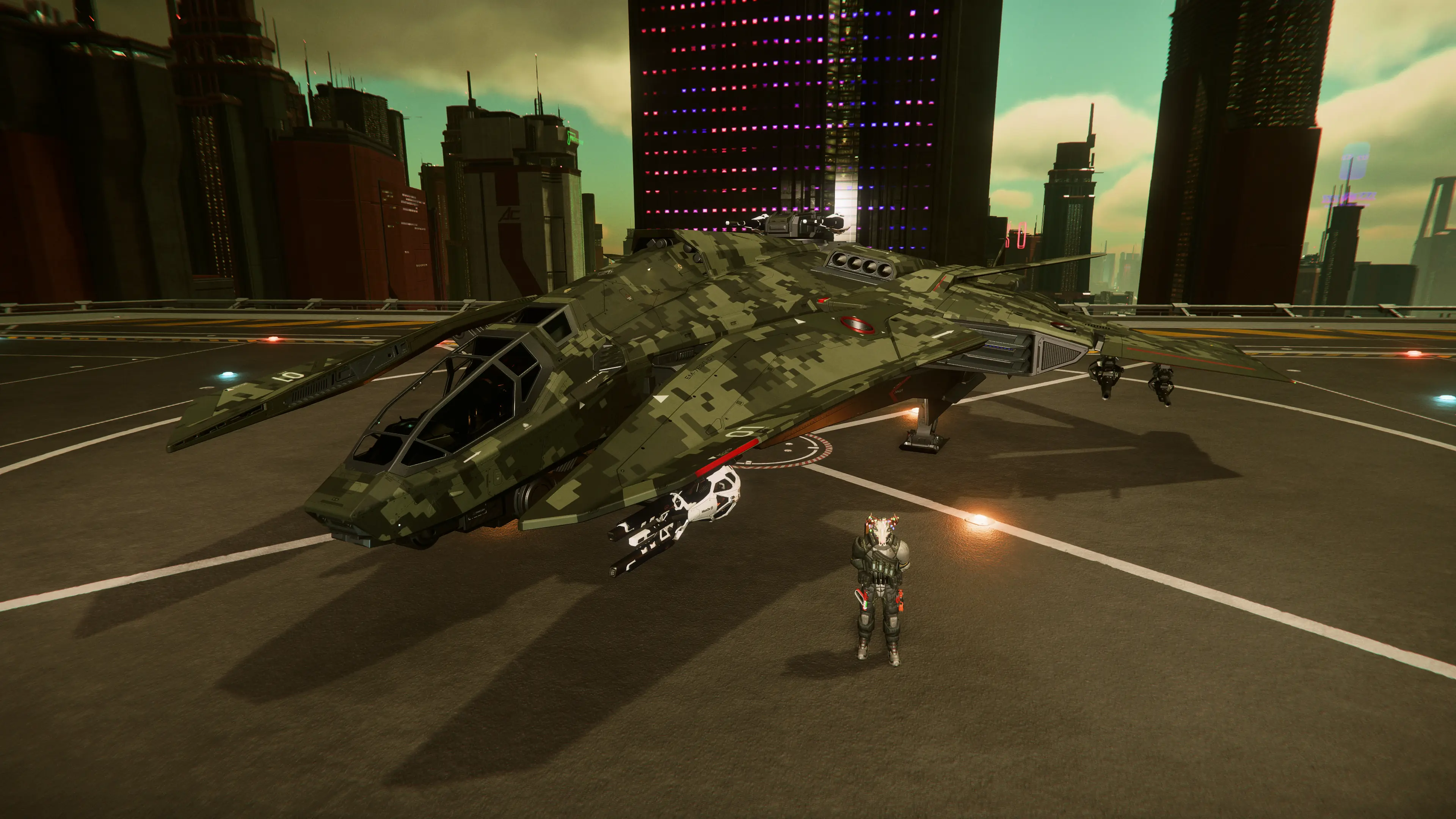
Attend, O gentle soul, and I shall weave thee a tale most wondrous, of stars and swords of light, of traitors, saints, and those who walk the fine and fateful thread betwixt dark and dawn. In the cold and distant firmament, where planets drift like beads on strings divine, the Resistance, weary yet unyielding, fleeth before the mighty hand of the First Order, whose ships blot out the stars like ink upon parchment. Their leaders, proud and merciless, seek to crush all hope, all spark of freedom, beneath a heel of durasteel and doctrine. Among the rebels flies brave Poe Dameron, a hawk most daring and proud, who seeketh victory not with patience but with fire. In boldness, he striketh a blow against the foe's great dreadnought, yet his triumph is marred by grievous loss, for many noble souls fall in the blaze of war, and General Leia, mother of rebellion, doth mourn that valor oft rides side by side with folly.
Meanwhile, upon an isle remote and soaked in time forgotten, dwelleth Luke Skywalker, the last Jedi, whose soul is cloaked in ash and sorrow. The young seeker Rey, drawn by stirrings in the Force and dreams of ancient light, doth find him there and entreats his guidance, bringing unto him the saber of his youth, as if to rekindle fires long cooled. But the old master, haunted by failure and shadows of his own making, casteth aside the blade and turneth from her plea, wishing only to fade as a ghost untroubled by legacy. Yet Rey, resolute as the rising sun, doth remain, and through trial, word, and wonder, she discovereth the pulse of the Force in all things: the breath of life, the death of stone, the balance that lieth twixt creation and ruin.
But lo—’tis not in seclusion alone that fate doth stir. Across the void, Rey findeth herself tethered to Kylo Ren, the broken son of light now cloaked in shadow, through a bond woven not by hand but by the will of the Force, or mayhap by a darker thread still. Their minds touch, and words pass like whispers through windless halls, revealing to each the ache and conflict of the other. Kylo, born Ben, doth struggle ‘twixt the wrath of Snoke, his master cruel and smug, and the memory of the love that yet lingers, like smoke from a hearth long dead. Rey, too, seeth the light flickering within him, and dares to believe that the fallen may yet rise. Thus armed with hope, she goeth unto him, seeking to turn the tide.
Atop the throne of Snoke she standeth, but the serpent reveals his coil—Snoke had foreseen her every thought, and her purpose is turned upon her. Yet in a twist most sharp, Kylo betrayeth his master and cleaveth him twain with saber sly, casting the chamber into chaos. Together they smite Snoke's crimson guard, a dance of fire and fury, and for a moment—nay, the barest blink of stars—they stand united. But Kylo, in his triumph, seeketh dominion, not peace, and offers Rey not salvation but conquest. She refuseth, and the bond is shattered in storm and sorrow.
Elsewhere, brave Finn and steadfast Rose pursue a whisper of hope, a codebreaker in the city of opulence and cruelty called Canto Bight, where the rich feast upon the spoils of suffering and war. Their quest, though noble in aim, endeth in betrayal and capture, and the price of failure is paid in blood and bitter retreat. Yet still they survive, and through their eyes we see that tyranny is oft dressed in gold and smiles, and resistance is more than battle—it is compassion and courage in quiet acts.
And now, upon the salt-blown plains of Crait, the last embers of rebellion gather, besieged and fading. The First Order descendeth like wolves upon lambs, and all seemeth lost. But behold! Out of legend, a figure emerge, Luke Skywalker, proud and luminous, standeth alone ‘gainst legions. He speaketh not in wrath, but in defiance and peace. The bolts of war pass through him like wind, and Kylo, blinded by hate, striketh at shadow. For Luke is not there but an image, a phantom born of Force and will, his true form resting afar, pouring forth his life that hope might live. As his form doth fade ‘neath twin suns remembered, he smiles, at peace, and becometh one with the Force.
And so the Resistance escapeth, not in triumph but in truth—for hope is not a weapon of steel but a seed, planted in the hearts of the living. Rey now carrieth the flame, the last Jedi in truth, but not alone, for those who believe, who dare to rise against darkness, shall answer her light. In a stable far away, a child with broom in hand gazeth to the stars, and in his eyes there flickereth a dream—that even the smallest spark may light the galaxy.
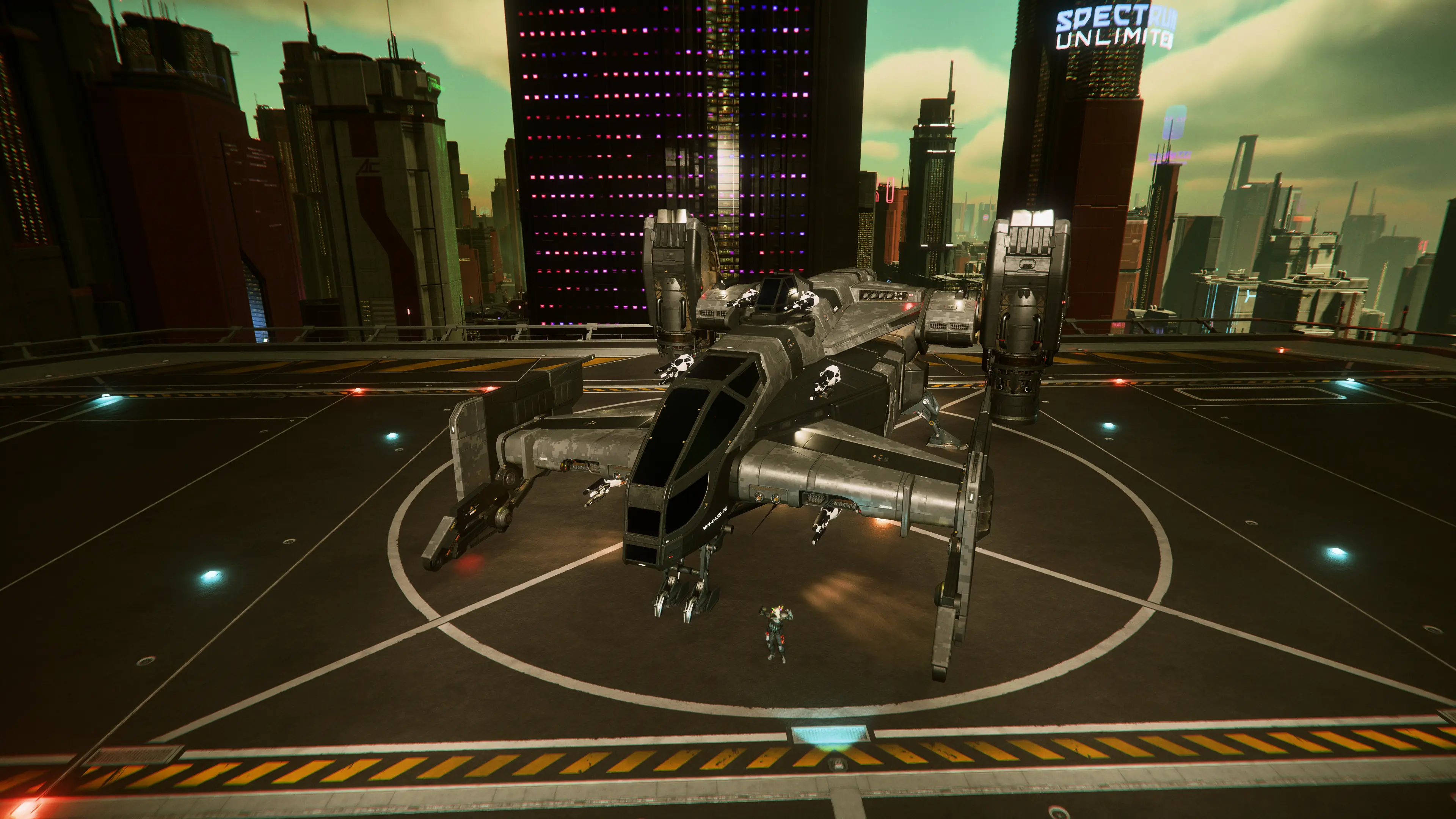
Attend me now, thou gentle soul of peace, and let me regale thee with a chronicle most loud and brash: a history carved in plasma and flame, where the youth of Earth, proud and shaven, are flung like arrows toward the heavens to die ‘mongst stars that know not mercy. In days yet to be, mankind hath grown proud—nay, swollen with its own dominion—such that Earth no longer dost suffice, and colonies do spring forth like weeds across the garden of the galaxy. Yet where man setteth boot, there doth he find not welcome, but war.
And lo, from the black abyss of space, a species unlike any known on Terra doth rise: the Arachnids, creatures born of chitin and hunger, who wield not machines, nor words, but fury and fang. They dwell upon the red sands of Klendathu, a place where the air itself seemeth hostile, and from thence do they launch their meteoric retribution, casting great rocks toward Earth, like angry gods flinging mountains.
Enter now our noble fool—Johnny Rico, a youth of privilege and cheekbone fair, whose heart beateth not with thought, but with yearning—for one Carmen Ibanez, a maiden of pilot's blood and ambition's flame. To win her gaze, he casteth off all comfort and enrolls in the grand machine of war, the Mobile Infantry, where flesh becometh armor, and obedience is the only virtue praised. "Service guarantees citizenship," they say, and oh, how sweetly doth propaganda lie!
Rico, with comrades forged in sweat and suffering—Dizzy Flores, whose heart bleeds for him in silence; Ace Levy, bold and brash; and Lt. Rasczak, who speaketh wisdom whilst gunning down monsters—doth learn what it meaneth to be a cog in the great and grinding wheel of the Federation. They are clad in armor, thrust from orbit, and bade to die for lands they ne’er shall see.
The war goeth poorly. On Klendathu, brave soldiers are torn asunder, their limbs sundered by bugs too vast to number, and their cries are but whispers on the wind. ‘Tis not war, but slaughter. Yet from this baptism of fire, Rico surviveth, and is reborn as a soldier true. He leadeth now, with spine of steel and trigger sure, a captain forged in the forge of futility.
Meanwhile, Carmen, flying the stars as she long hath dreamed, discovereth that dreams and death lie close as kin, and even the vacuum may weep. The fleet is shattered, sundered by plasma and betrayal. Her path and Rico's diverge like twin comets, each ablaze but doomed to pass without embrace.
And what of the enemy? These bugs, so oft declared mindless, now show cunning. They are not chaos—they are design. They fight not merely to kill, but to survive, to repel, to learn. Lo! There is rumor of a Brain Bug, a great and bloated thing that drinketh thought and learneth man like a book. ‘Tis decided: it must be captured, for knowledge is power, and power the only gospel the Federation heedeth.
Thus to Planet P they go, through storm and flame, where Dizzy falleth in Rico’s arms, slain by duty she never questioned but always loved. With vengeance in heart and nuke in hand, Rico leadeth the final charge, and lo—the Brain Bug is taken, quivering and pale, a wretched thing of mouths and secrets. And the people of Earth rejoice, not in peace, but in proof—that victory is possible, and that bugs too, may fear.
And as the music of war doth blare, as new youth are fed into uniform and gun, Carmen returneth to duty, and Rico, now risen from recruit to legend, voweth to fight yet again. For the war is not won, nor shall it ever be. It perpetuates itself, fed by the same fire that burneth books and crowneth bullets.
In the end, ‘tis not merely bugs that die, but innocence, and truth, and questions. And still the broadcasts roll, with smiles painted and lies enshrined: “Would you like to know more?”
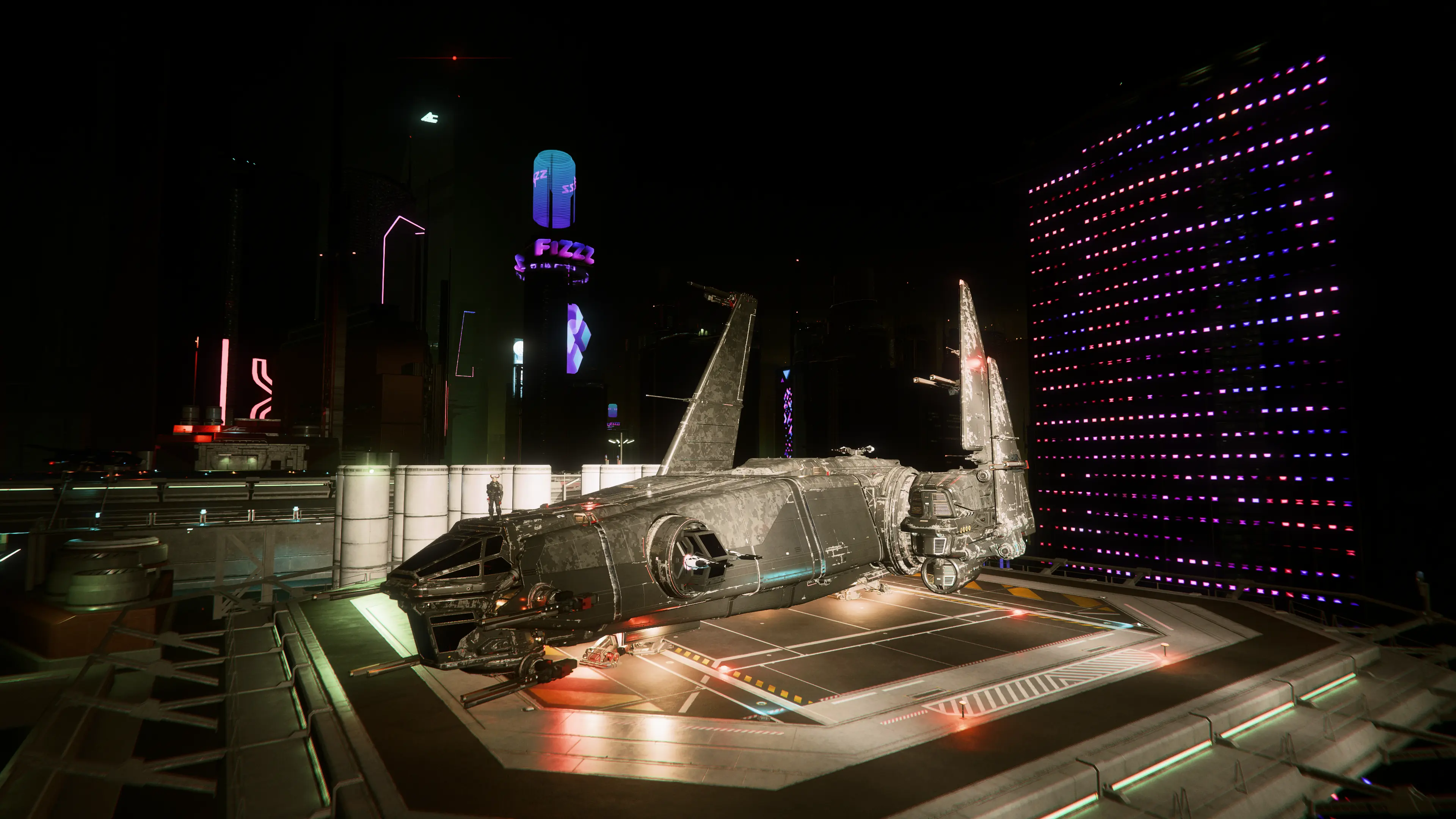
In a galaxy not unlike our own, though thrice as absurd and twice as bewigg’d, there thriveth a world most base: the planet Spaceball, whose lungs wheeze from lack of air, for her rulers, gluttonous and foul, have squandered their own sky’s breath. And lo! To preserve their decadent wheezing, they conspire to steal the very atmosphere of Druidia, a realm of forests, princesses, and conveniently passworded planetary shields. Thus enter Dark Helmet, a villain so preposterous in posture and helm, he seemeth more hat than man. With him flyeth the grand ship Spaceball One, a behemoth so vast it passeth by like a tax scroll — and with him, the odious President Skroob, whose brain is but half a loaf of stale bread.
But hark! A wedding is afoot! For on Druidia, the fair Princess Vespa, of coiffure high and nobility higher, doth flee her betrothal to the dullard Prince Valium (who yawneth more than he speaketh). She escapeth with her droid of manners, the golden and ever-sighing Dot Matrix, into the stars, where foolish freedom beckons. Yet fate is swifter still, for soon she is beset by the forces of Dark Helmet, who seeketh to ransom her in exchange for Druidia’s precious air.
Yet do not despair! For heroes arise — or at least, stumble into place. Lone Starr, a rogue of rugged charm and spaceship debts, and his trusty Mog (half man, half dog — he’s his own best friend), the loyal Barf, dost take up the charge for coin and perhaps for honor. With ship Eagle 5 (a Winnebago with dreams), they rescue the damsel with great blundering and some improbable timing. A chase ensueth across stars and sand, replete with laser blasts, melodrama, and jokes most low.
Upon the desert moon of Vega, they meet the sage Yogurt, who speaketh not of the Force but of the Schwartz — a power both mysterious and marketing-friendly. "Merchandising!" he crieth, revealing scrolls of products absurd: flamethrowers, bedsheets, dolls — even this very tale sold back to thee! Lone Starr receiveth wisdom, a ring, and a prophecy: he is not as alone as he once believed.
Meanwhile, Dark Helmet doth engage in villainy most extra. Disguised as a maid, he kidnappeth Vespa anew and returneth to Spaceball One. There, using the secret code (a luggage combination so foolish it insulteth locks), they lower Druidia’s shield and begin to vacuum her sweet air with a machine shaped like a maid of terrifying scale. All seemeth lost, sucked up in wind and incompetence.
But nay! Lone Starr cometh once more, wielding the Schwartz like a twinkling noodle, dueling Helmet in a battle filled with fourth-wall breaks and slapstick sorcery. There is much clanging of rings and twisting of arms, until Helmet is bested, and the ship self-destructs (due to Skroob’s unwise meddling with the autodestruct). The villains escape in escape pods… or would have, had they not been flung into the void, fast food bags in hand, their fate more greasy than glorious.
At last, Vespa and Lone Starr return. Love bloometh, debts are paid, and Barf danceth with joy. The heroes depart for further adventures—or perhaps a sequel that ne’er shall be.
Thus endeth this tale, this mirthful jab at galactic epics, where earnestness is mocked, villainy is helmeted, and not even Yogurt is safe from commercialization. For in this universe, the Schwartz may be with thee… but so is the copyright.
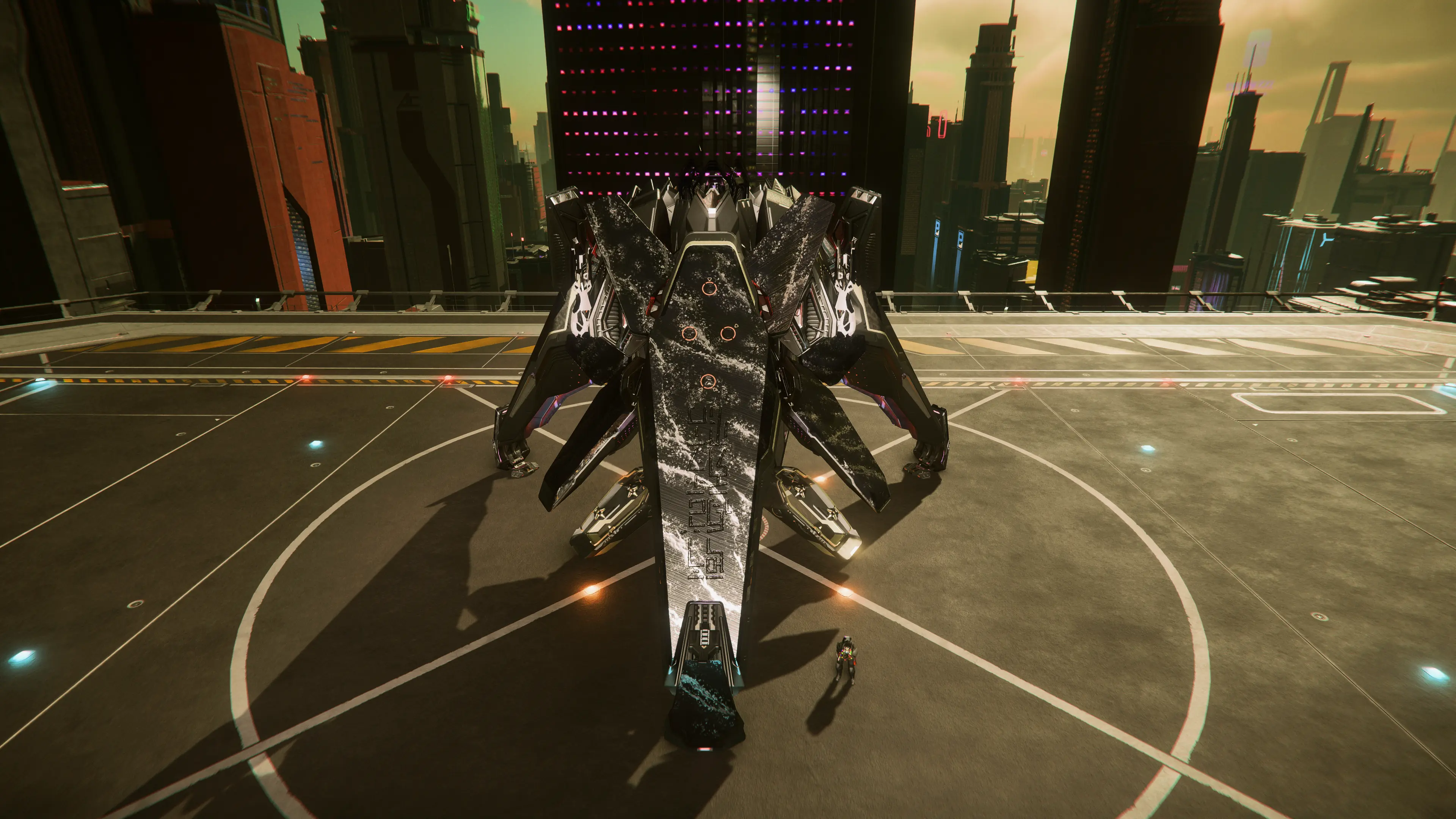
Mirai Guardian MX Wikelo War Special
Heavy Fighter –
Wiki Page –
Pledge Page
Image credit: Konsi1, thanks for the image!
In a galaxy not unlike our own, though thrice as absurd and twice as bewigg’d, there thriveth a world most base: the planet Spaceball, whose lungs wheeze from lack of air, for her rulers, gluttonous and foul, have squandered their own sky’s breath. And lo! To preserve their decadent wheezing, they conspire to steal the very atmosphere of Druidia, a realm of forests, princesses, and conveniently passworded planetary shields. Thus enter Dark Helmet, a villain so preposterous in posture and helm, he seemeth more hat than man. With him flyeth the grand ship Spaceball One, a behemoth so vast it passeth by like a tax scroll — and with him, the odious President Skroob, whose brain is but half a loaf of stale bread.
But hark! A wedding is afoot! For on Druidia, the fair Princess Vespa, of coiffure high and nobility higher, doth flee her betrothal to the dullard Prince Valium (who yawneth more than he speaketh). She escapeth with her droid of manners, the golden and ever-sighing Dot Matrix, into the stars, where foolish freedom beckons. Yet fate is swifter still, for soon she is beset by the forces of Dark Helmet, who seeketh to ransom her in exchange for Druidia’s precious air.
Yet do not despair! For heroes arise — or at least, stumble into place. Lone Starr, a rogue of rugged charm and spaceship debts, and his trusty Mog (half man, half dog — he’s his own best friend), the loyal Barf, dost take up the charge for coin and perhaps for honor. With ship Eagle 5 (a Winnebago with dreams), they rescue the damsel with great blundering and some improbable timing. A chase ensueth across stars and sand, replete with laser blasts, melodrama, and jokes most low.
Upon the desert moon of Vega, they meet the sage Yogurt, who speaketh not of the Force but of the Schwartz — a power both mysterious and marketing-friendly. "Merchandising!" he crieth, revealing scrolls of products absurd: flamethrowers, bedsheets, dolls — even this very tale sold back to thee! Lone Starr receiveth wisdom, a ring, and a prophecy: he is not as alone as he once believed.
Meanwhile, Dark Helmet doth engage in villainy most extra. Disguised as a maid, he kidnappeth Vespa anew and returneth to Spaceball One. There, using the secret code (a luggage combination so foolish it insulteth locks), they lower Druidia’s shield and begin to vacuum her sweet air with a machine shaped like a maid of terrifying scale. All seemeth lost, sucked up in wind and incompetence.
But nay! Lone Starr cometh once more, wielding the Schwartz like a twinkling noodle, dueling Helmet in a battle filled with fourth-wall breaks and slapstick sorcery. There is much clanging of rings and twisting of arms, until Helmet is bested, and the ship self-destructs (due to Skroob’s unwise meddling with the autodestruct). The villains escape in escape pods… or would have, had they not been flung into the void, fast food bags in hand, their fate more greasy than glorious.
At last, Vespa and Lone Starr return. Love bloometh, debts are paid, and Barf danceth with joy. The heroes depart for further adventures—or perhaps a sequel that ne’er shall be.
Thus endeth this tale, this mirthful jab at galactic epics, where earnestness is mocked, villainy is helmeted, and not even Yogurt is safe from commercialization. For in this universe, the Schwartz may be with thee… but so is the copyright.
